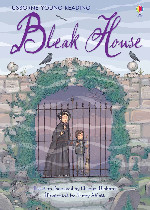
Bleak House is a novel by English author Charles Dickens, first published as a serial between March 1852 and September 1853. The novel has many characters and several sub-plots, and the story is told partly by the novel's heroine, Esther Summerson, and partly by an omniscient narrator. At the centre of Bleak House is a long-running legal case, Jarndyce and Jarndyce, which came about because someone wrote several conflicting wills. Dickens uses this case to satirise the English judicial system. Though the legal profession criticised Dickens' satire as exaggerated, this novel helped support a judicial reform movement, which culminated in the enactment of legal reform in the 1870s.
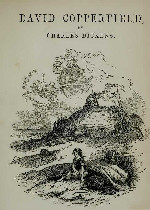
David Copperfield(大卫·科波菲尔) 立即阅读
David Copperfield is the eighth novel by Charles Dickens. The novel's full title is The Personal History, Adventures, Experience and Observation of David Copperfield the Younger of Blunderstone Rookery (Which He Never Meant to Publish on Any Account). It was first published as a serial in 1849–50, and as a book in 1850. The novel features the character David Copperfield, and is written in the first person, as a description of his life until middle age, with his own adventures and the numerous friends and enemies he meets along his way. It is his journey from being an impoverished, neglected child to a successful author.
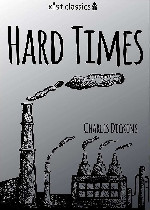
Hard Times is unusual in several ways. It is by far the shortest of Dickens' novels, barely a quarter of the length of those written immediately before and after it. Also, unlike all but one of his other novels, Hard Times has neither a preface nor illustrations. Moreover, it is his only novel not to have scenes set in London. Instead the story is set in the fictitious Victorian industrial Coketown, a generic Northern English mill-town, in some ways similar to Manchester, though smaller. Coketown may be partially based on 19th-century Preston.

“It is not a large house,” I said. “We don’t want a large house. Two spare bedrooms, and the little three-cornered place you see marked there on the plan, next to the bathroom, and which will just do for a bachelor, will be all we shall require—at all events, for the present. Later on, if I ever get rich, we can throw out a wing. The kitchen I shall have to break to your mother gently. Whatever the original architect could have been thinking of—” “Never mind the kitchen,” said Dick: “what about the billiard-room?”
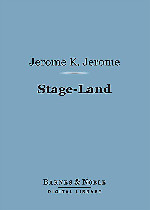
His name is George, generally speaking. "Call me George!" he says to the heroine. She calls him George (in a very low voice, because she is so young and timid). Then he is happy. The stage hero never has any work to do. He is always hanging about and getting into trouble. His chief aim in life is to be accused of crimes he has never committed, and if he can muddle things up with a corpse in some complicated way so as to get himself reasonably mistaken for the murderer, he feels his day has not been wasted.
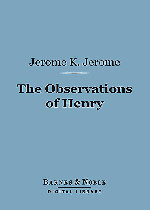
The Observations of Henry(亨利的观察) 立即阅读
The Observations of Henry is a delightful anthology of short stories. Some are witty. Some are downright humorous. Others have a touch of appealing pathos. And yet others just stir the imagination towards thinking of the more romantic side of life in 19th century Britain. The stories are cleverly linked as chapters from the reminiscences of a waiter who is analogous to the good old English butler. This is bedtime reading at its best.

Years ago, when I was very small, we lived in a great house in a long, straight, brown-coloured street, in the east end of London. It was a noisy, crowded street in the daytime; but a silent, lonesome street at night, when the gas-lights, few and far between, partook of the character of lighthouses rather than of illuminants, and the tramp, tramp of the policeman on his long beat seemed to be ever drawing nearer, or fading away, except for brief moments when the footsteps ceased, as he paused to rattle a door or window, or to flash his lantern into some dark passage leading down towards the river.
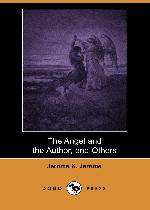
The Angel and the Author - and Others(天使与作者) 立即阅读
In this story the author dreams that he is dead and is going up and up. Now he feels that he has lost all opportunities to do good. He tries to recall whatever good he had done during his life time when he was living in this world. He realizes that he has done no deed of great benevolence during his life time. The angel who records good deeds of people is flying with him. He asks him what deeds of goodness he has recorded for him.

Sketches in Lavender, Blue and Green(蓝色和绿色的薰衣草草图) 立即阅读
The advantage of literature over life is that its characters are clearly defined, and act consistently. Nature, always inartistic, takes pleasure in creating the impossible. Reginald Blake was as typical a specimen of the well-bred cad as one could hope to find between Piccadilly Circus and Hyde Park Corner. Vicious without passion, and possessing brain without mind, existence presented to him no difficulties, while his pleasures brought him no pains. His morality was bounded by the doctor on the one side, and the magistrate on the other.
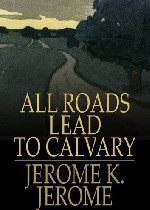
All Roads Lead to Calvary(难逃磨难) 立即阅读
All Roads Lead to Calvary is a 1919 novel by the British writer Jerome K. Jerome. It was one of the last works written by Jerome, better known for his Three Men in a Boat, and shows the influence of the First World War on him. It is a Bildungsroman in which a Cambridge University educated woman Joan Allway becomes a journalist and then a wartime ambulance driver. She encounters various different people, gaining new experiences and confronting many of the moral issues of the day.